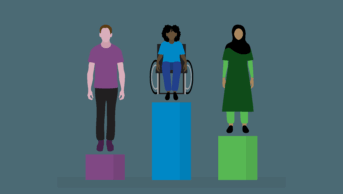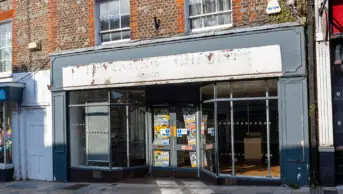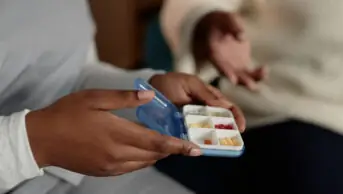The COVID-19 pandemic has starkly exposed how inequalities in health can be affected by factors such as ethnicity, gender or geography — and all the evidence points to these getting worse.
But in this episode of The PJ Pod, we hear from two pharmacists trying to turn this around.
First, Ade Williams, superintendent pharmacist at Bedminster Pharmacy in Bristol, explains how he used a ‘Pulse in the Pub’ blood pressure checking service as a springboard to better understand his local community’s health needs.
Second, Suhayla Dhanji Merali, advanced specialist pharmacist for perinatal services at Central and North West London NHS Foundation Trust, speaks about her outreach work in perinatal mental health, and going into local mosques to help people get the support they need.
Lastly, Carolyn Wickware, investigations editor at The Pharmaceutical Journal, outlines new data that shows how funding cuts are putting much-needed pharmacy services at risk in England’s most deprived areas.
This episode was presented by Corrinne Burns, reporter at The Pharmaceutical Journal, and produced by Geoff Marsh.
Want to hear more from The PJ Pod? Follow us on Spotify, Google Podcasts, Apple Podcasts or other popular podcast platforms to listen to our latest episodes.
Related articles
- Carolyn Wickware’s full investigation: ‘Catastrophic implications’: the pharmacy closures widening health inequalities
- Suhayla Danji Merali was listed as a PJ ‘Woman to Watch’ for 2022. Read more about her work here
- Read more about Ade Williams’ work here
- The Royal Pharmaceutical Society’s paper on health inequalities: Tackling health inequalities: Delivering accessible pharmaceutical care for everyone
Please email us with a brief description of any initiative you are involved in that aims to narrow health inequality at: editor@pharmaceutical-journal.com

Health inequalities
The Royal Pharmaceutical Society’s policy on health inequalities was drawn up in January 2023 following a presentation by Michael Marmot, director of the Institute for Health Equity, at the RPS annual conference in November 2022. The presentation highlighted the stark health inequalities across Britain.
While community pharmacies are most frequently located in areas of high deprivation, people living in these areas do not access the full range of services that are available. To mitigate this, the policy calls on pharmacies to not only think about the services it provides but also how it provides them by considering three actions:
- Deepening understanding of health inequalities
- This means developing an insight into the demographics of the population served by pharmacies using population health statistics and by engaging with patients directly through local community or faith groups.
- Understanding and improving pharmacy culture
- This calls on the whole pharmacy team to create a welcoming culture for all patients, empowering them to take an active role in their own care, and improving communication skills within the team and with patients.
- Improving structural barriers
- This calls for improving accessibility of patient information resources and incorporating health inequalities into pharmacy training and education to tackle wider barriers to care.


